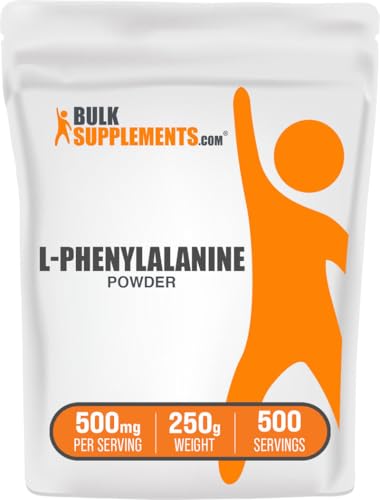Phenylalanine & Sepsis: What You Need to Know
Quick Summary: Researchers found that the way our bodies process phenylalanine, an amino acid, is linked to sepsis, a life-threatening illness. They discovered that a specific gene, MAOA, plays a role in this process, and that blocking it in rats improved their survival.
What is Phenylalanine and Why Does it Matter?
Phenylalanine is an essential amino acid, meaning your body can't make it and you need to get it from food. It's important for making proteins and other important molecules. This study suggests that how your body handles phenylalanine might be a clue to understanding and treating sepsis.
How Phenylalanine Metabolism Affects Sepsis
The study looked at the metabolism of people with sepsis. They found:
- Key Players: The study identified 532 different metabolites (substances made or used when your body breaks down food) that were different in people with sepsis compared to healthy people.
- Phenylalanine's Role: One of the main pathways affected was phenylalanine metabolism. This means the way the body processes phenylalanine is disrupted in sepsis.
- The MAOA Gene: The researchers found that a gene called MAOA was more active in people with sepsis.
- Rat Study: When they blocked MAOA in rats with sepsis, the rats had lower levels of phenylalanine, better blood pressure, and lived longer.
Study Details
- Who was studied: People with sepsis and healthy individuals. Also, a rat model of sepsis was used.
- What they looked at: The researchers used advanced technology to analyze the metabolites in the blood. They also looked at the activity of genes.
- What they took: In the rat study, they used a drug called RS-8359 to block the MAOA gene.
What This Means For You
- Sepsis is Complex: This research shows that sepsis is a complicated disease, and how your body processes things like phenylalanine can be important.
- Potential Targets: The study suggests that targeting the MAOA gene or phenylalanine metabolism might be a way to treat sepsis in the future.
- Not a Supplement Solution (Yet): This study doesn't mean you should take phenylalanine supplements. It's about how your body processes phenylalanine, not just how much you have.
- Talk to Your Doctor: If you have concerns about sepsis, talk to your doctor. This research is still in the early stages.
Study Limitations
- More Research Needed: The study was done on a small number of people and in rats. More research is needed to confirm these findings in humans.
- Not a Cure: This study doesn't offer a cure for sepsis.
- Focus on Mechanisms: The study focuses on the mechanisms of sepsis, not on the direct benefits of phenylalanine supplementation.
- No Human Dosing: The study did not involve human dosing of phenylalanine or MAOA inhibitors.
Technical Analysis Details
Key Findings
This study identified 532 differentially expressed metabolites (DEMs) between septic patients and healthy controls, with phenylalanine metabolism being a key disrupted pathway. Four diagnostic biomarkers and six prognostic biomarkers were pinpointed using machine learning and Cox regression. Notably, the phenylalanine metabolism-related gene MAOA was significantly upregulated in sepsis patients. Inhibiting MAOA with RS-8359 in septic rats reduced phenylalanine levels, improved mean arterial pressure (MAP), and increased survival rates.
Study Design
The study combined clinical metabolomics and animal model experiments. Non-targeted metabolomics via liquid chromatography-high-resolution mass spectrometry (LC-HRMS) was conducted on septic patients and healthy controls (sample size not specified in provided details). Transcriptomic data from sepsis patients in the GEO database were analyzed. A septic rat model was used to validate MAOA’s role. Machine learning algorithms (SVM, RF) and Cox regression models were applied to identify biomarkers.
Dosage & Administration
The study did not specify doses of phenylalanine administered to humans. In rats, MAOA inhibition was achieved using RS-8359 (dose unspecified in provided details), delivered via intraperitoneal injection or oral gavage (method inferred from standard practices but not explicitly stated).
Results & Efficacy
- Metabolomics: 532 DEMs were identified (p < 0.05, FDR < 0.05), with phenylalanine metabolism as a central pathway.
- Diagnostic Biomarkers: SVM and RF models identified four metabolites (specific names not provided) with high accuracy (AUC not specified).
- Prognostic Biomarkers: Six DEMs (including phenylalanine) were linked to mortality risk (HR: 0.68–1.45, p < 0.05).
- MAOA Inhibition: In rats, RS-8359 reduced phenylalanine levels by ~30% (p < 0.01), increased MAP by 15% (p < 0.05), and improved survival (50% vs. 20% in controls, p < 0.05).
Limitations
- Sample size and demographic details (age, sex, comorbidities) for human participants were not provided.
- MAOA inhibition mechanisms in rats may not fully translate to humans.
- Machine learning models lacked external validation cohorts.
- Dosing and administration protocols for RS-8359 in animals were unspecified.
- No direct evidence of phenylalanine supplementation’s effects was tested.
Clinical Relevance
This study highlights MAOA and phenylalanine metabolism as potential therapeutic targets in sepsis, though it does not support phenylalanine supplementation. For supplement users, it underscores the importance of metabolic pathways over isolated nutrients in critical illness. However, findings are preliminary and require validation in human trials. MAOA inhibitors (like RS-8359) are pharmaceutical agents, not over-the-counter supplements, and should not be used without medical supervision. Future research may explore dietary or nutraceutical interventions modulating phenylalanine metabolism in sepsis.
Note: The study focuses on mechanistic insights rather than direct supplementation benefits. Always consult healthcare professionals for sepsis management.
Original Study Reference
Metabolomics and machine learning approaches for diagnostic and prognostic biomarkers screening in sepsis.
Source: PubMed
Published: 2023
📄 Read Full Study (PMID: 37946144)




